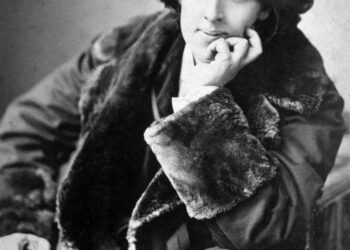As summer sizzles in the northern hemisphere, you might be looking for a good book to take on holiday, or to help you travel in your imagination.
Look no further than the World Economic Forum’s Book Club Podcast which has an array or recommendations from two expert book-lovers.
And if you get reading tips from social media, you may have been influenced by #BookTok. Financial Times Deputy Books Editor Laura Battle explains what that is, and why the global publishing industry is taking it seriously.
Join the World Economic Forum Book Club on Facebook and subscribe to the podcast.
The World Economic Forum Book Club Podcast transcript
Robin Pomeroy: From the World Economic Forum, sitting in for Beatrice Di Caro, I’m Robin Pomeroy, and this is the Book Club podcast. It’s summer in the northern hemisphere and so on this episode we’re looking at what summer books you might want to pack for your vacation, or reads that could help transport you, perhaps without you even needing to leave home.
And escaping in a good summer book needn’t be a guilty pleasure. In the second half of the show, we hear from Ella Berthoud, a bibliotherapist who uses the power of books to help people through tough times. Ella is co-author of a book called The Novel Cure: An A to Z of Literary Remedies, and she gives us her pick of escapist fiction for the summer.
But first, people increasingly get summer book recommendations from social media, not least TikTok, where the hashtag #BookTok has become so influential that publishers and booksellers are sitting up and paying attention. My colleague Kate Whiting asked Laura Battle, Deputy Books Editor of the Financial Times, about that and about her summer reading recommendations. And Kate started by asking Laura Battle about the rising demand for books.
Laura Battle: I think there’s a lot of things going on at once, actually. I think there’s almost like the tail-end of the pandemic where people were stuck at home and some people had no time at all, but some people had lots of time to fill. So people were buying more books, whether it was e-books or listening to audiobooks or actual physical books.
Audiobooks continue to be a really big deal. But in terms of physical books and physical bookshops, it’s a really interesting one. And I think, weirdly, social media does have a part to play because all over Instagram, BookTok, all sorts of different channels, there’s a sort of almost fetishization of the physical books. You know, people share pictures of themselves against their bookshelves. And of course, during the pandemic, we were all in front of our bookshelves, whether they were finely curated or not. So people had an interest in the physicality of books, I think. And that’s definitely playing a part.
What impact is BookTok having on publishing?
Kate Whiting: So you mentioned TikTok, and there is this BookTok trend. What exactly is it and what are we seeing?
Laura Battle: BookTok is the sort of literary wing of TikTok. It’s the BookTok hashtag, which started like lots of hashtags, a very small, very niche thing. And it really, I think, began in the field of genre fiction. So it was a lot of people, particularly young readers reading young adult fiction, sci-fi, particular genres, where it started to take off.
But within the last year, it’s really exploded and is becoming a sort of major influence on book sales, particularly physical book sales. So it’s now very mainstream and a lot of publishers, bookshops, people in the industry are desperately trying to get in on it because it has such an influence over book sales.
For example, the Hay Book Festival announced a partnership, they were their digital media partners. That was announced early this year. One interesting thing is it it’s completely unpredictable, really. I mean, all these publishers and bookshops can sort of try and catch the wave, but it’s a really unpredictable force. And one of the unpredictable things about it is that, yes, it is important in kickstarting book sales of books that are just coming out, but it’s also relaunching books that were published 10 years ago.
There’s the really famous example of Madeline Miller’s The Song of Achilles, which was published in 2012. And I think it had an initial print run of 20,000 copies. And it was just announced, I think earlier this month, that it’s now sold 2 million copies across all formats.
Kate Whiting: So the back catalogue then is becoming a big thing. And publishers are having to go back and republish these books?
Laura Battle: Yes. And there’s been such a focus, I think, in the publishing industry on what is new, churning these new books out. And now they’re really having to rethink their back catalogue. And how can they make authors that may be long dead, how can they relaunch this, repackage it and catch that wave?
Kate Whiting: That’s fascinating. So it’s almost doing what I guess streaming of music has done to the charts, that we see Kate Bush up there, number one, with Running Up That Hill.
Laura Battle: Yes, exactly. The sort of ‘classic albums’. It’s just how you quite do it because essentially it’s word of mouth. I mean, these BookTok videos are just very short videos that just people stream: reactions to books or even the ending of books or they’re throwing books across the room. It’s a very emotional reaction to books. And it’s how you harness that, I suppose, if you were a publisher.
By Kate Whiting & Robin Pomeroy
Read the full article at https://www.weforum.org/agenda/2022/07/book-club-summer-books-2022/.












